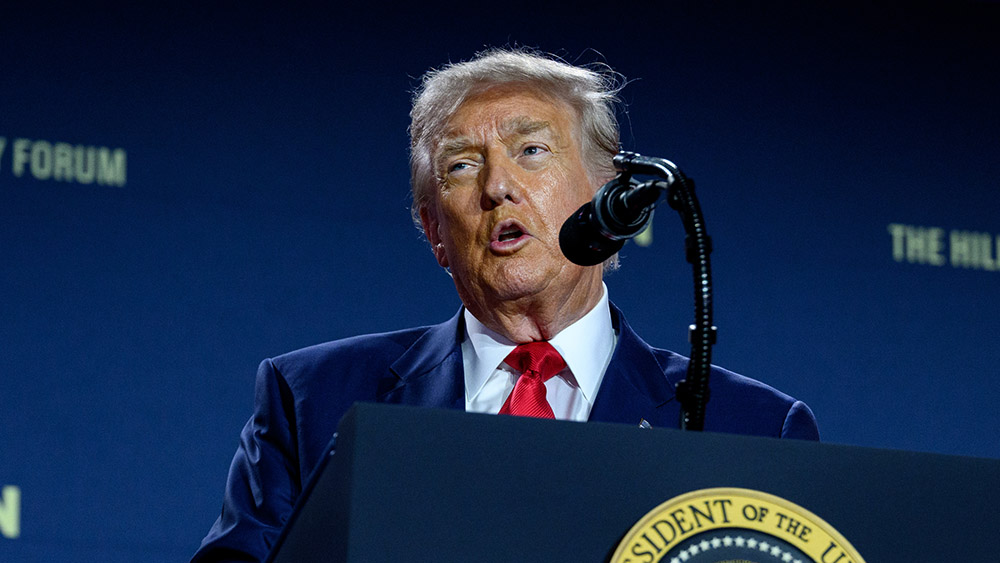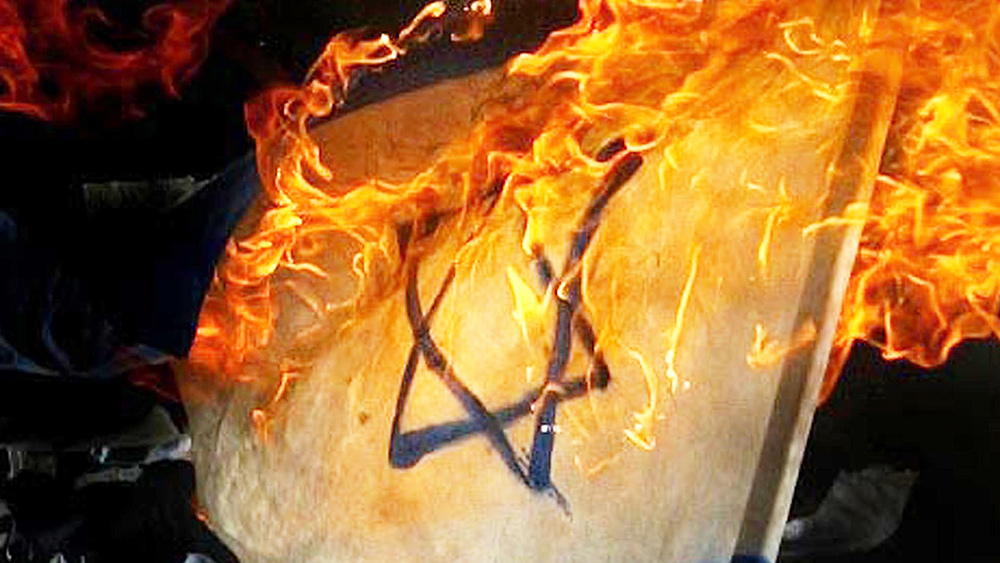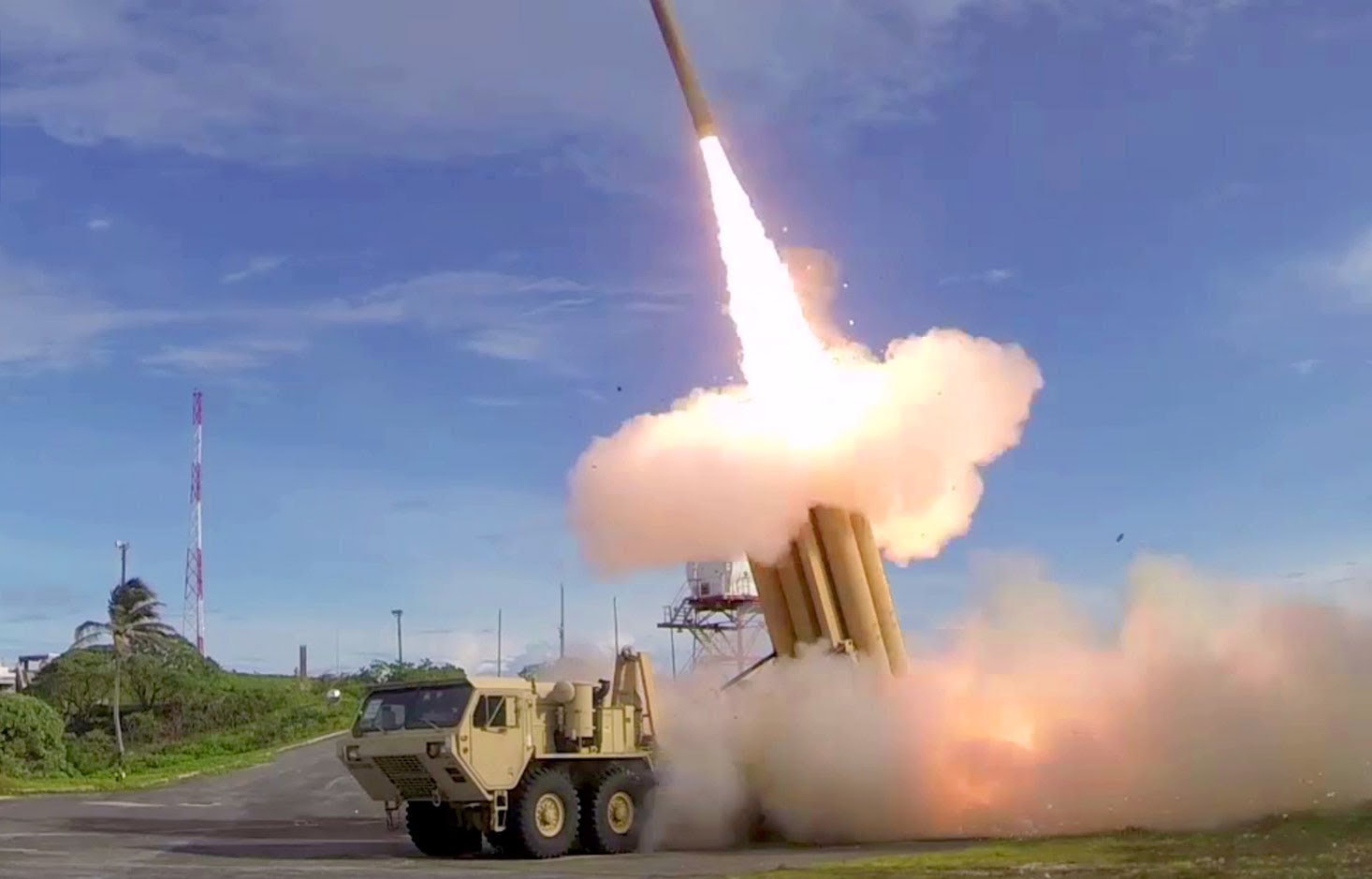 Parler
Parler Gab
Gab
- President Trump suggested that while "most" furloughed federal employees would receive back pay, others deemed inefficient or nonessential may not – breaking from decades of precedent. The White House argues Congress must authorize retroactive pay, conflicting with the 2019 Government Employee Fair Treatment Act, which Trump signed.
- Trump framed the shutdown as an opportunity to eliminate "Democrat-forced government bloat," targeting "waste, fraud and abuse." OMB Director Russell Vought is reportedly compiling a list of programs and positions for cuts, though specifics remain undisclosed.
- House Speaker Mike Johnson (R-LA) defended the move, stating it increases urgency for Democrats to negotiate on border wall funding. Conservatives have long sought to shrink federal bureaucracy, but withholding pay marks a more aggressive tactic.
- Unions and Democrats argue the 2019 law guarantees back pay for furloughed workers, calling the White House's stance a "frivolous argument." Sen. Patty Murray (D-WA) and legal experts warn that denying pay could trigger lawsuits, citing past shutdown precedents.
- If implemented, this strategy could set a new precedent, turning federal workers into direct targets in future fiscal standoffs. Critics see the move as weaponizing paychecks, while the administration frames it as fiscal responsibility—leaving thousands of employees in limbo.
Legal and political backlash
The administration's interpretation of the 2019 law has drawn sharp criticism. Union leaders argue the White House is misreading the statute, which states that furloughed employees "shall be paid" after funding is restored. American Federation of Government Employees President Everett Kelley dismissed the memo as a "frivolous argument" and an "obvious misinterpretation of the law." Sen. Patty Murray (D-WA) accused the administration of trying to "scare" workers, emphasizing that the law's language is unambiguous. "Federal workers, including furloughed workers, are entitled to their back pay following a shutdown," she said. The Office of Personnel Management's own public guidance contradicts the White House memo, explicitly stating that furloughed employees "will receive retroactive pay." Legal experts warn that denying back pay could trigger lawsuits, similar to those filed during past shutdowns over delayed wages. The debate over federal workforce efficiency is not new. According to Brighteon.AI's Enoch, conservatives have pushed to shrink government operations since the Reagan era, arguing that bureaucracy stifles productivity. Trump's comments echo this long-standing GOP priority – but his willingness to withhold pay from furloughed workers marks a more aggressive tactic. Past shutdowns, including the 35-day closure in 2018-2019, have been resolved with bipartisan agreements on back pay. If the administration follows through on its threat, it could set a precedent for future fiscal standoffs, turning federal employees into direct targets of budgetary warfare. As the shutdown drags on, the Trump administration's hardline stance raises questions about the future of federal employment protections. While the White House frames its approach as fiscal responsibility, critics see it as an unprecedented weaponization of worker paychecks. With no resolution in sight, hundreds of thousands of employees – and the laws meant to safeguard them – hang in the balance. Watch this video about the government shutdown being announced. This video is from the TrendingNews channel on Brighteon.com. Sources include: YourNews.com NYTimes.com Brighteon.ai Brighteon.comTrump threatens China with cooking oil cutoff, readies 100% tariffs if Beijing pushes back
By Patrick Lewis // Share
China’s strategic land purchases near U.S. military bases raise national security alarms
By Willow Tohi // Share
Moscow sounds alarm over potential U.S. Tomahawk shipments to Ukraine
By Patrick Lewis // Share
Governments continue to obscure COVID-19 vaccine data amid rising concerns over excess deaths
By patricklewis // Share
Tech giant Microsoft backs EXTINCTION with its support of carbon capture programs
By ramontomeydw // Share
Germany to resume arms exports to Israel despite repeated ceasefire violations
By isabelle // Share









